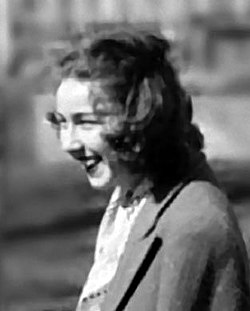Flannery O'Connor Quote
Unfortunately, to try to disconnect faith from vision is to do violence to the whole personality, and the whole personality participates in the act of writing. The tensions of being a Catholic novelist are probably never balanced for the writer until the Church becomes so much a part of his personality that he can forget about her—in the same sense that when he writes, he forgets about himself.
Flannery O'Connor
Unfortunately, to try to disconnect faith from vision is to do violence to the whole personality, and the whole personality participates in the act of writing. The tensions of being a Catholic novelist are probably never balanced for the writer until the Church becomes so much a part of his personality that he can forget about her—in the same sense that when he writes, he forgets about himself.
Related Quotes
About Flannery O'Connor
Mary Flannery O'Connor (March 25, 1925 – August 3, 1964) was an American novelist, short story writer, and essayist. She wrote two novels and 31 short stories, as well as a number of reviews and commentaries.
O'Connor was a Southern writer who often wrote in a sardonic Southern Gothic style. She relied heavily on regional settings and grotesque characters, often in violent situations. In her writing, an unsentimental acceptance or rejection of the limitations, imperfections or differences of these characters (whether attributed to disability, race, crime, religion or sanity) typically underpins the drama.
O'Connor's writing often reflects her Catholic faith, and frequently examines questions of morality and ethics. Her posthumously compiled Complete Stories won the 1972 U.S. National Book Award for Fiction and has been the subject of enduring praise.
O'Connor was a Southern writer who often wrote in a sardonic Southern Gothic style. She relied heavily on regional settings and grotesque characters, often in violent situations. In her writing, an unsentimental acceptance or rejection of the limitations, imperfections or differences of these characters (whether attributed to disability, race, crime, religion or sanity) typically underpins the drama.
O'Connor's writing often reflects her Catholic faith, and frequently examines questions of morality and ethics. Her posthumously compiled Complete Stories won the 1972 U.S. National Book Award for Fiction and has been the subject of enduring praise.
